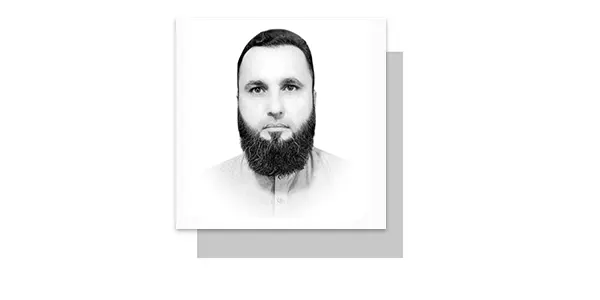DURING my interaction with the representatives from the Afghan Ministry of Interior in their recent visit to Pakistan, I came across some interesting information about the recent developments in Afghanistan, which is otherwise not available in the mainstream media. They provided an intricate tapestry of developments unfolding in Afghanistan. This encounter underscored the dynamic evolution of narratives surrounding women’s rights, education, economy and societal transformations within the country. At a pivotal juncture, Afghanistan grapples with a complex interplay of progress and challenges that shape its landscape.
The delegation, challenging prevailing international narratives, emphatically stated that girls’ education is not permanently banned in Afghanistan. Currently, a comprehensive review of the curriculum spanning grades 1 to 10, grounded in Islamic principles, is underway to ensure the provision of universal basic education. With the completion of the curriculum for grades one to nine, the imminent resumption of girls’ education across Afghanistan is more likely in coming months. The delegation’s emphasis on medical education, particularly the empowerment of women in healthcare, reinforces this commitment, albeit the sobering fact that only one student passed the medical examination in a local university at Kabul this year underscores the pressing need for enhanced educational quality. Despite sufficient teacher availability, systemic issues demand immediate attention.
The protection of women’s rights remains a paramount concern, and the delegation highlighted the detrimental impact of forced repatriation on women’s well-being. Striking a delicate balance between advocacy and addressing the humanitarian crisis necessitates a nuanced approach. Positive strides, such as the establishment of women-only markets providing safe spaces and economic opportunities in various cities of Afghanistan, represent tangible progress towards fostering inclusivity. However, concerns are surfacing about the international community wielding women’s rights as a “diplomatic weapon,” stressing the importance of locally-driven sustainable solutions. Another good news from the delegation was the official abolition of child marriages in Afghanistan. This, indeed, marks a pivotal step in safeguarding the next generation, persistent systemic factors like poverty and limited access to education perpetuate harmful practices. The scarcity of students passing rigorous exams underscores broader challenges in the quality of education, necessitating a multifaceted approach encompassing curriculum reform, teacher training and resource allocation.
The increasing number of Afghan students seeking scholarships in Pakistan underscores both their thirst for knowledge and the limitations of Afghanistan’s educational infrastructure. International cooperation becomes imperative, fostering academic exchange and fortifying educational foundations in both nations. A strategic focus on STEM education and vocational skills could further empower young Afghans to contribute significantly to the nation’s rebuilding efforts. In a question about Pakistan-Afghanistan relations, navigating the delicate equilibrium between repatriation efforts and the looming threat of TTP presents a formidable dilemma. While Pakistan’s concerns about the TTP operating from Afghan soil are valid, resolving this issue demands collaborative efforts and meaningful dialogue. The Taliban Government, grappling with internal disputes and security threats, seeks flexibility in Pakistan’s treatment of Afghan refugees, emphasizing the urgency for a humane and nuanced approach to repatriation.
According to the delegation, Afghanistan’s economy is currently on a path of stabilization, a marked departure from the challenges faced during past regimes, whom were largely categorized as rentier regimes. The representatives asserted that the country is undertaking large-scale infrastructural projects solely funded by its local economy, without any external support. Notably, they highlighted the construction of a substantial artificial river as a prime example of Afghanistan’s self-reliance in driving significant developmental initiatives. In contrast to the narrative presented by the Afghan Interior Ministry delegation, a World Bank report on Afghanistan paints a picture of a fragile economy heavily reliant on external support. Contracting by 25% in the last two years, the economy underscores vulnerability and dependence on aid. Despite some recovery, challenges persist, including high levels of deprivation, a doubling of unemployment and limited female participation in formal work. The education sector grapples with obstacles with millions of children, particularly girls, out of school and financial uncertainties looming large.
As a whole, it can be safely argued that the Afghan government, under scrutiny and lacking international recognition, operates under immense pressure, juggling internal conflicts, security threats and diplomatic relations. Acknowledging and supporting their efforts in these challenging circumstances is of utmost importance. Engaging with Afghanistan, understanding its unique context and providing development support become shared responsibilities of the global community.The journey of Afghanistan is far from linear. While commendable progress has been achieved in areas like women’s rights, education and societal norms, formidable challenges persist. Addressing issues such as inadequate education, the intricacies of repatriation, and security threats requires steadfast commitment from both within and outside Afghanistan.
—The writer is contributing columnist, based in Islamabad.
views expressed are writer’s own.









